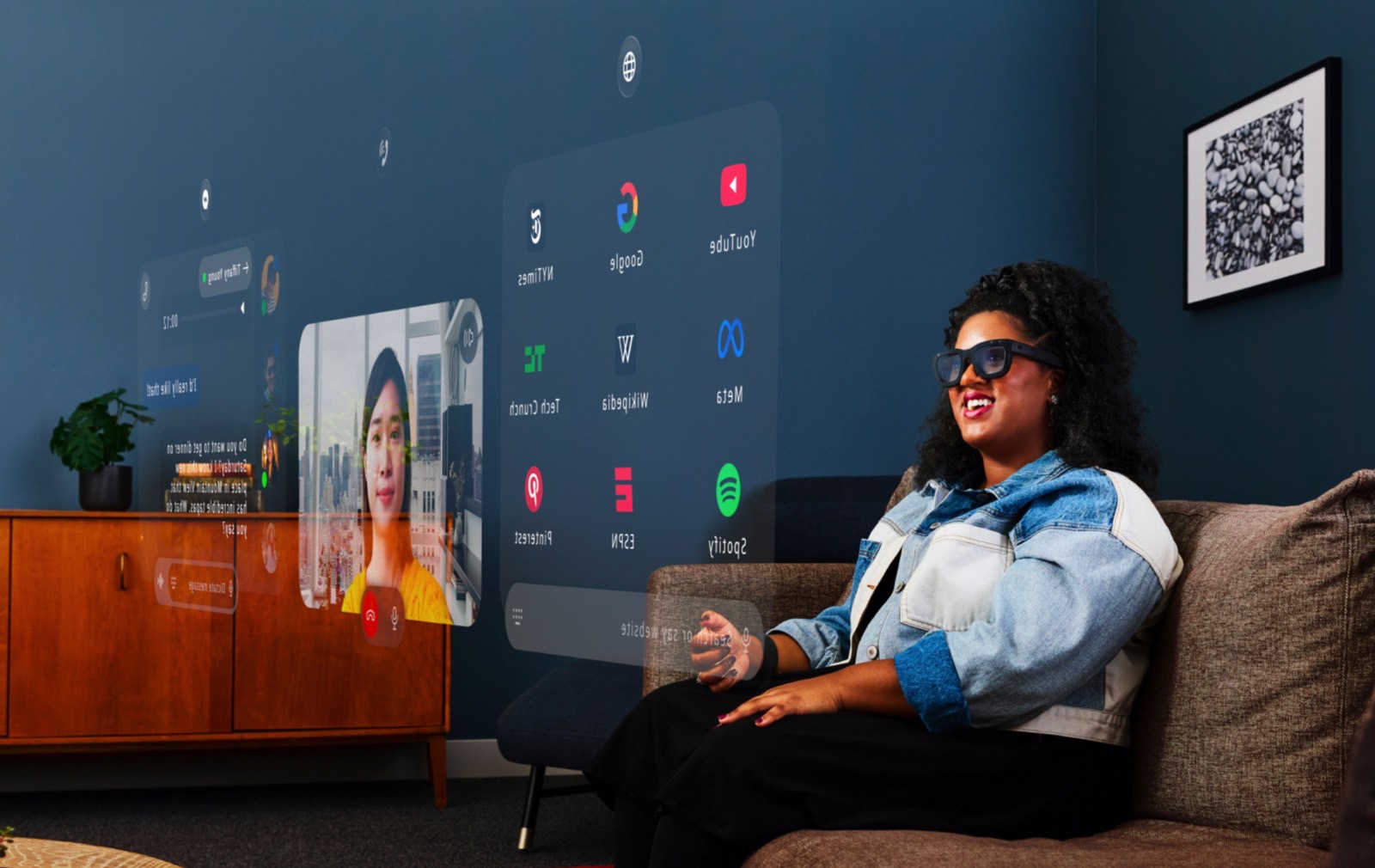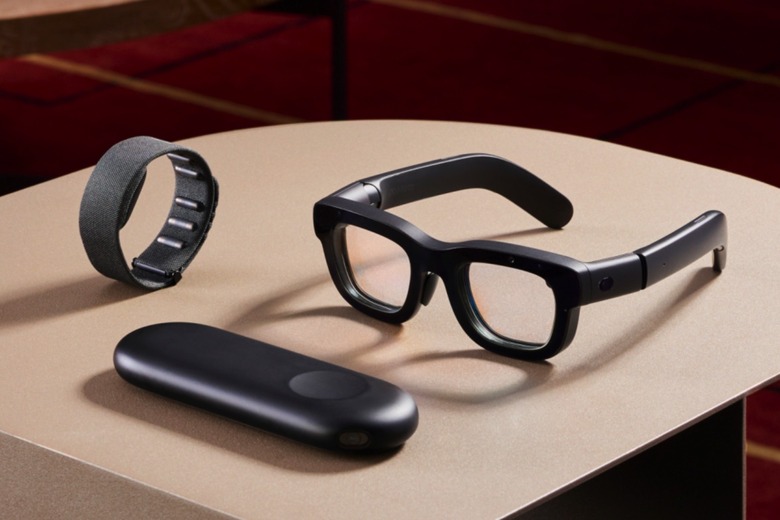Meta Orion AR Glasses Are A Declaration Of War Against The iPhone
Meta hosted its Connect 2024 event on Wednesday, where it detailed its progress with various products, including hardware and software. AI was obviously one of the main topics at the event, but it wasn't the most exciting one now that the Meta Orion AR glasses are real. That's right, Meta unveiled its first-gen augmented reality glasses, which are supposed to help you replace the smartphone in your pocket.
The Orion isn't a commercial product, and you'll never get to buy one in the near future. It's not as elegant as regular glasses, but it's a lot smaller than the Vision Pro, Apple's mixed reality product that is the obvious precursor to Apple's AR glasses of the future.
But the Orion is a proof of concept. You can't make AR glasses right now. The technology will get even better in a few years when we'll likely see multiple companies create such devices.
Eventually, devices like the Orion will replace the iPhone and Android phones. Now that Meta is ready to share its prototype with the world, it's clear that we're getting closer to that future. After everything I saw from Meta regarding Orion, I'm convinced Apple is navigating toward the same goal. When the time comes to "kill" the iPhone, Apple will surely have its own AR glasses to do it.
The Orion isn't a standalone spatial computer like the Vision Pro. It's made of three parts.
First, you have the AR glasses with thick frames to fit seven cameras and other components. The lenses themselves are made of silicon carbide. Micro LED projectors beam images in front of your eyes. You get a large 70-degree field of view that will accommodate all the digital content you'll place on top of the surrounding reality. The image isn't as sharp as the Vision Pro's.
Then there's the "neural wristband," which resembles an Apple Watch without a display. It can detect various movements, which will help you control the action on the AR screen. You'll also use your eyes to interact with the user interface.
Finally, a large computer puck handles the processing power and operating system. You'll need to carry the puck with you.
All that makes me realize Apple already has the same components in place. First, the Vision Pro debuted technologies that need to be shrunk to fit inside frames similar to Orion. The Apple Watch, which can recognize gestures, could be used as a controller with a similar device. Finally, the iPhone is the puck. Apple's software would connect all these devices in ways Meta can't.
Unlike Apple and Google, Meta never made operating systems for wide public use. The Orion will need good software. That's where Apple and Google have an advantage, though neither company is ready to unveil any Orion-like concepts of their own.

Meta has an advantage in AI, and the Orion would make use of generative artificial intelligence. Demos show that Meta AI can recognize objects, like ingredients in a fridge, and suggest recipes based on that. It's just one use case of genAI helping out in the wild.
On that note, the iPhone 16's Camera Control button will one day work like Google Lens, giving Apple Intelligence eyes to see the world around you and offer help based on that contextual information.
What I'm getting at is that I'm personally excited about a future where I'd wear the smartphone like a pair of traditional glasses. I'm excited at the prospect of getting Apple AR glasses at some point in the future, first to accompany and then replace my iPhone. They'll become the iPhone.
I'm also sure I wouldn't want Meta's Orion to replace my iPhone, even if it were available. I definitely would not wear these thick AR glasses, especially in public. They might be light at 100g, but they're still bulky. Meta said in a press release that a lot of miniaturization has gone into making these devices. Components need to shrink even more before such glasses become appealing.
I'm not minimizing what Meta has done. It's remarkable to see the product demo so soon. I actually think Meta is doing the right thing here, as it puts pressure on Apple, Google, and others to compete.
As for why you can't buy the Orion even if you like the glasses, The Verge has the answer. It costs about $10,000 to make one unit, almost three times the price of the Vision Pro. The silicon carbide lenses are the most expensive ones.
Meta explained that it'll make the Orion prototype available to Meta employees and select external audiences to continue improving it and building a future consumer version. The company will prioritize improving the spatial computing experience's visuals and making the form factor even smaller. Meta also said it wants to make the Orion more affordable to manufacture at scale.
The Verge has a great video demo of the whole product below.
